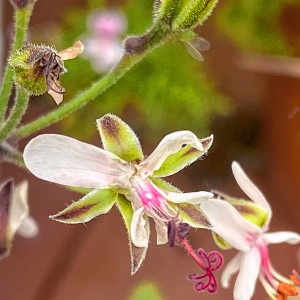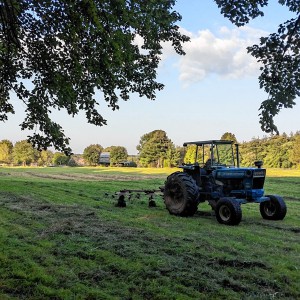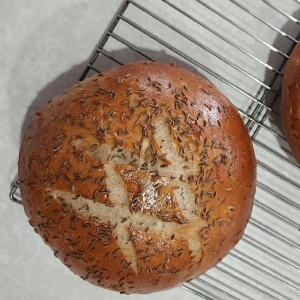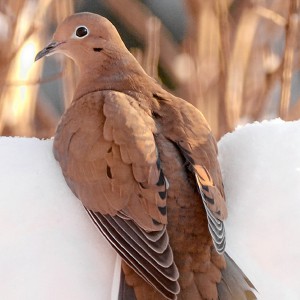Ask a local master gardener about cover crops
| Published: 10-26-2018 2:49 PM |
Q: Eeek! I waited too long to plant a cover crop in my vegetable garden. What can I use now to protect the soil over winter? —A.T. Northampton
A: Take comfort in knowing you are not alone in this dilemma, A.T.! You are correct in knowing it is important to put some sort of winter protection over any bare soil after clearing out your vegetable garden at the end of the season.
Unlike springtime mulching, which is done to suppress weeds, feed the soil and help retain moisture, the purpose of mulching over winter is to protect the soil from our New England freezes, thaws and bitter winds. Three examples of good winter mulches to use are clean straw, shredded leaves, and pine needles. Put them loosely over any bare spots, about 2 – 4 inches deep.
Straw typically needs to be moved in the springtime. If you grow garlic over the winter, straw is a great insulator for it, and the garlic will simply grow up through the straw in the spring. If you use a thin layer of pine needles or shredded leaves, they will not need to be moved in spring.
Ensure leaves are indeed shredded so they do not mat or clump together — preventing rain or melting snow from seeping through them into the ground. Clean grass clippings can be added to provide extra nitrogen and aid leaf decomposition.
Pine needles and shredded leaves tend to be acidic, so it is good to have your garden soil pH tested in the spring to confirm it is where you want it to be. Testing your garden soil pH is, in fact, always a good practice in the springtime.
A quick lesson here on the difference between hay, straw, and salt marsh hay is in order: Hay is an assortment of forage grasses and contains weed seeds. Because of these seeds, it is not a good mulch choice. Straw is the stems of field crops like wheat and oats. It is a good mulch option because it does not contain seeds, is readily available and is hollow, thereby holding air and acting as a bit of insulation. Here in Western MA one sometimes sees salt marsh hay for sale as a mulch, too. It is a fine option. Unlike traditional hay, salt marsh hay is harvested from salt marshes and the seeds will not germinate here as they require salty, marsh soils which we do not have.
Article continues after...
Yesterday's Most Read Articles
 South Hadley man fatally shot in attempted robbery
South Hadley man fatally shot in attempted robbery
 Smith College exhibit explores Sylvia Plath’s botanical inspiration
Smith College exhibit explores Sylvia Plath’s botanical inspiration
 Holyoke man finds bear paw in his yard
Holyoke man finds bear paw in his yard
 Guest columnist Bill Dwight: How to make sense of Northampton’s school budget dilemma
Guest columnist Bill Dwight: How to make sense of Northampton’s school budget dilemma
 South Hadley’s Lauren Marjanski signs National Letter of Intent to play soccer at Siena College
South Hadley’s Lauren Marjanski signs National Letter of Intent to play soccer at Siena College
 Deerfield residents petitioning to fix ‘dangerous’ intersection
Deerfield residents petitioning to fix ‘dangerous’ intersection
Good luck with your mulching, A.T. and thank you for asking a Master Gardener!
Have a gardening dilemma? Please send your questions, along with your name/initials and community, to the Western Massachusetts Master Gardener Association at
AskAMasterGardener@wmmga.org. One question will be selected and answered per week.
wmmga.org

 Valley Bounty: Grass-fed animals that feed the grass: Gwydyr Farm in Southampton focuses on ‘restoring the connection between land, food and people’
Valley Bounty: Grass-fed animals that feed the grass: Gwydyr Farm in Southampton focuses on ‘restoring the connection between land, food and people’ Weekly Food Photo Contest: This week’s winner: Mary Chicoine of Easthampton
Weekly Food Photo Contest: This week’s winner: Mary Chicoine of Easthampton  Speaking of Nature: A romantic evening for two birders — To hear the wonderful sounds of the Saw-whet Owl one must go outside at night
Speaking of Nature: A romantic evening for two birders — To hear the wonderful sounds of the Saw-whet Owl one must go outside at night Speaking of Nature: Where have all the birds gone?: They’re there, and here’s a handy tool to keep track of their appearances
Speaking of Nature: Where have all the birds gone?: They’re there, and here’s a handy tool to keep track of their appearances
